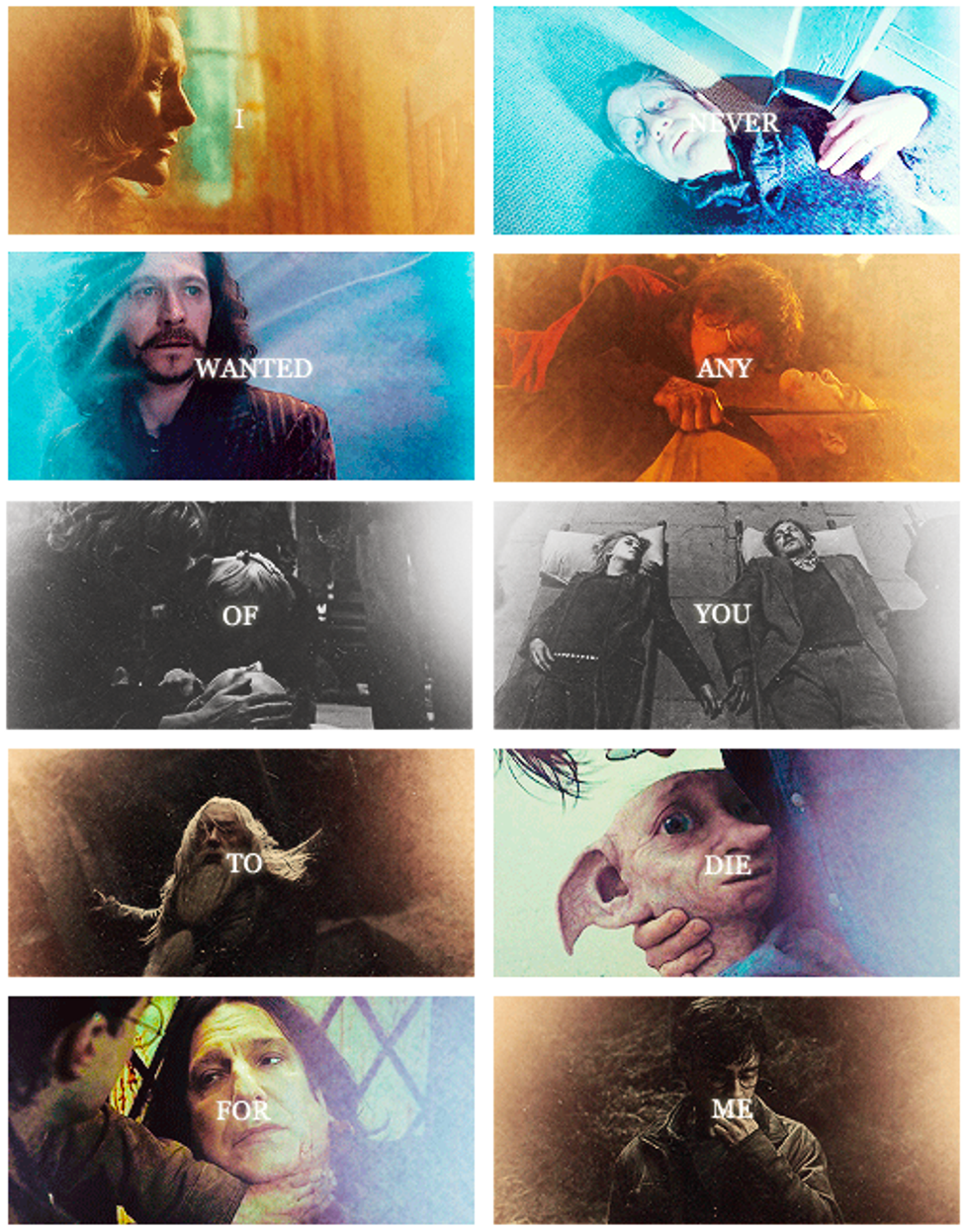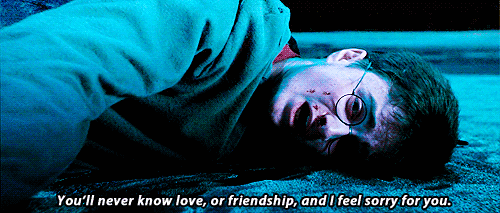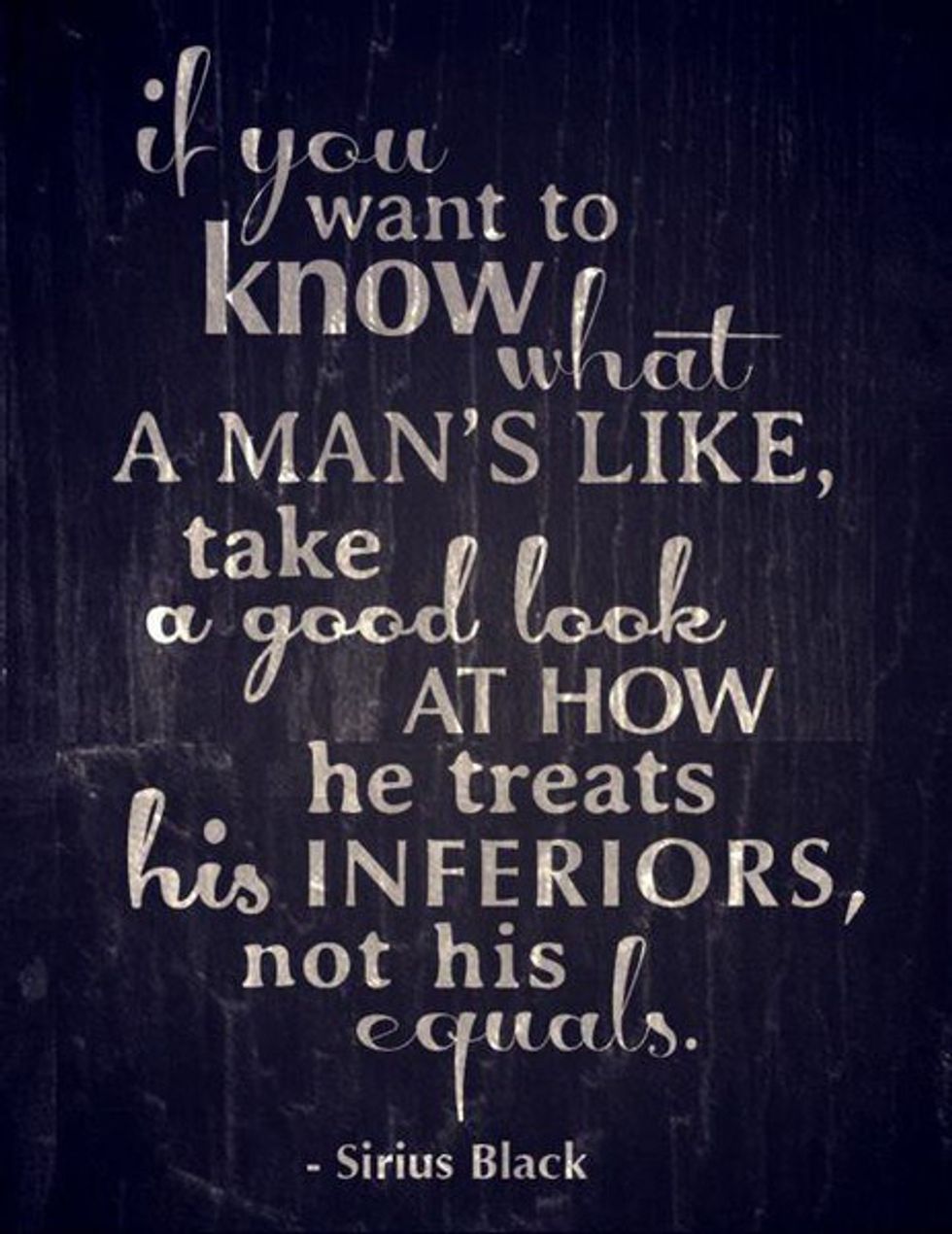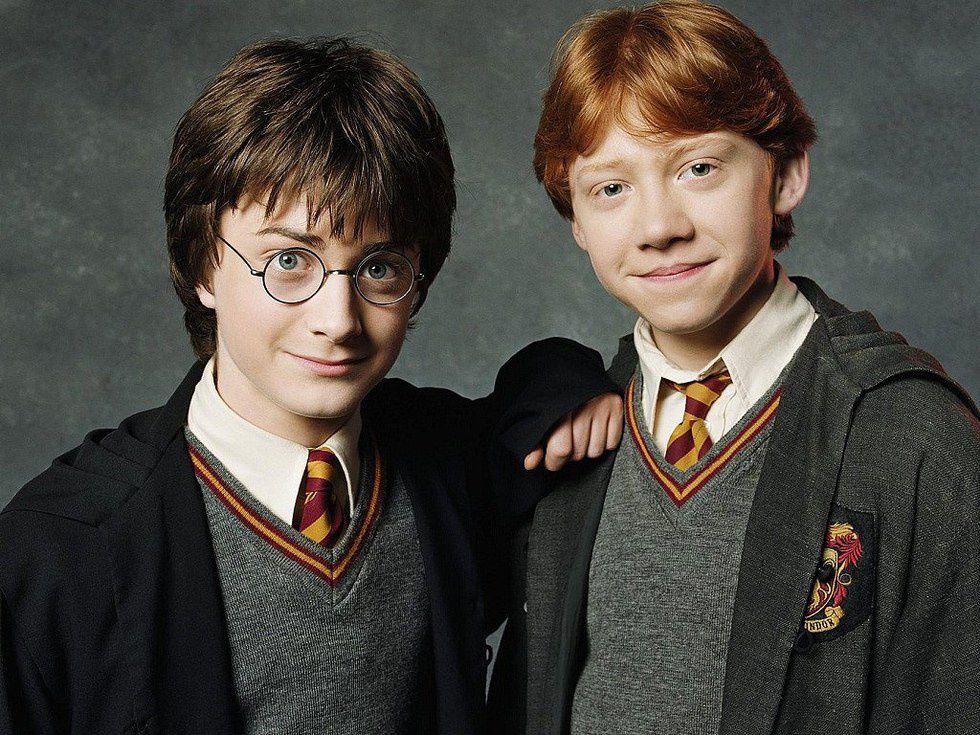With "Harry Potter and the Cursed Child" hitting the West End next summer, some non-Potterheads might be wondering, "Why the hell are you all still talking about this story?"
It's a valid question. The last book was released in 2007 and the final movie installment arrived in 2011. Even before J.K. Rowling announced what is now being referred to as the eighth chapter in the story, "Harry Potter" still kind of ruled the world.
Which just goes to show how important the story is. It's more than a children's book, and more than a story about magic and spells. In fact, "Harry Potter" has become a culture. From Wizard Rock to Potter-themed weddings, clearly there's more to the story than a boy with a scar on his head. So here are five lessons that make "Harry Potter" an important and timeless story that everyone should engage in.
1. It shows all sides of war.
To a lot of people, especially in current American culture, war is a foreign concept. Yet it's a very real thing, and as people who have not experienced it in our backyards, it becomes harder for us to empathize with those in other countries who are living war on a daily basis. And Rowling doesn't just set us up with the sad boy orphaned by war. No, we see the true, twisted character of the villain. We see those who betray the cause, those who fight for love or friendship. We see families torn apart, and not always because of death. We see the loyal servant question his master, wanting an out but not knowing how. This video featuring 30 Seconds to Mars' song "This is War" sums it up best. We see the prophets, the liars and the honest, the leaders, the victims and the messiah. And suddenly war is real. And that's a lesson that every culture needs to remember.
2. Related: Harry Potter makes us question what we're fighting for.
Harry might be "the chosen one," but he still has a choice. While he isn't selfless 100 percent of the time (see: Harry constantly acting recklessly and putting both his and other's lives in danger -- to be fair, everyone's lives were pretty much constantly in danger when he was around, though), he could have completely rejected this Wizarding World. But he's not just fighting Voldemort for his own life; he's fighting for his parents, his friends, his entire world. That weight that was put on him was at times way too much pressure, but he still fought. And everyone who fought with him was doing it for the exact same reasons. Harry Potter reminds us that we do what we do for more than just us, for more than what we're feeling in some single moment, and that it's okay to wonder why the hell this is all up to you anyway. Because sometimes fighting whatever battles we're facing flat-out sucks.
3. Love is the most powerful thing in the world.
Yes, yes, we all know about the love that covered Harry as a baby which acted as a spell to protect him. That's the most obvious example Rowling gives us of love's true power. But we also see that love has the power to bring home loved ones (Percy reconciling with the Weasley's, Ron in "Deathly Hallows"), to transform our innermost corrupt nature (Snape's love for Lily, the Malfoys' love for their son), to find us when our loved ones are gone ("The ones that love us never really leave us" -- Sirius Black), and to surpass the circumstances that have been forced upon us (Neville continuing to stick by his parents' side). These are just a handful of examples of the ways in which we see love displayed in these books. I would say that I could write a book on it, but -- well, you could just go read the books.
From the Ministry of Magic to Voldemort's death-eater reign, to Snape traipsing through Hogwart's halls, even to Harry's role as the leader between him, Ron and Hermione... There are various types of hierarchy in the books and displays on how people respond to it. There's fear, anger, resentment, submission. We see what power does to these characters, how it shapes them, and how it affects those around them. If we take the above quote and apply it in our own lives, we can see people's true characters rather easily. While this might seem like a small idea, culturally this can not only shape how we see others, but can shape how we ourselves act. It raises the important questions: What does power do to me? And those leaders, all the ones in our country with power, are they really acting like they should? More importantly than what power does to a person, these books show us that sometimes our authority is not right. And typically, it's that power that's corrupted those in charge.
5. Your family is not always your blood.
So often in today's society we see so many people trying to make it on their own. Strong, independent -- they need no one. And while independence is important, family is even more significant in one's life. Because you always need a place to come home to, people to talk to and to love you even when you run away. But sometimes they're not your blood relatives. Maybe it's because they're gone; maybe it's because they're toxic. But those friends who will always welcome you back, who will tell you when you've messed up, who will help you even when you don't think you need it -- that's real family. Our desire to bond and to be in community won't ever leave us, no matter how far we run. And family will be there through everything. We'll protect them and love them and keep them safe. Even when they made us sleep in a cupboard under the stairs for the first 11 years of our lives.
























